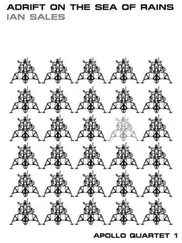Юджин Фишер - Adrift
Здесь есть возможность читать онлайн «Юджин Фишер - Adrift» весь текст электронной книги совершенно бесплатно (целиком полную версию без сокращений). В некоторых случаях можно слушать аудио, скачать через торрент в формате fb2 и присутствует краткое содержание. Год выпуска: 2010, Жанр: Фантастика и фэнтези, short_story, на английском языке. Описание произведения, (предисловие) а так же отзывы посетителей доступны на портале библиотеки ЛибКат.
- Название:Adrift
- Автор:
- Жанр:
- Год:2010
- ISBN:нет данных
- Рейтинг книги:3 / 5. Голосов: 1
-
Избранное:Добавить в избранное
- Отзывы:
-
Ваша оценка:
- 60
- 1
- 2
- 3
- 4
- 5
Adrift: краткое содержание, описание и аннотация
Предлагаем к чтению аннотацию, описание, краткое содержание или предисловие (зависит от того, что написал сам автор книги «Adrift»). Если вы не нашли необходимую информацию о книге — напишите в комментариях, мы постараемся отыскать её.
Adrift — читать онлайн бесплатно полную книгу (весь текст) целиком
Ниже представлен текст книги, разбитый по страницам. Система сохранения места последней прочитанной страницы, позволяет с удобством читать онлайн бесплатно книгу «Adrift», без необходимости каждый раз заново искать на чём Вы остановились. Поставьте закладку, и сможете в любой момент перейти на страницу, на которой закончили чтение.
Интервал:
Закладка:
“Ah, instead of food or medicine, it is voltage that you ship.” said Laurent.
“Yes, exactly. I mean, we ship food and medicine too, of course. But what they lacked was power. I just got these this morning,” she said, and clicked over to an email with pictures from the island. They showed tents and awnings set up on a beach, between piles of storm debris that were still being cleared. Extension cords snaked through the sand toward the shoreline, where the outlines of a row of nodes that had been dragged up the beach could just be made out.
“This work, the ant trail, this is done as a charity?” asked Laurent.
“Depends on what you mean. This is all charity work, but the network time still has to be paid for. There are always NGOs to partner with to finance disaster relief, though. Honestly, when an island gets hit like this I just go ahead and start setting things up and worry about the service contracts later. It would be defensible from a public relations standpoint even if we couldn’t get a deal in place, though I can’t imagine that ever happening.”
Laurent nodded, and pressed at the floor with his heels and swiveled toward Janet. “It is very important work that you do,” he said.
On that occasion, with Laurent sitting in her chair, the side of his face illuminated by the soft blue light from her screen, Janet was moved by some indulgent urge to ask him questions of her own.
“Do you believe in adoption?” she asked. He gave her a quizzical look. His skin was even darker than Caxton’s, but his eyes were almost the same. She elaborated, “By that I mean, do you think it’s okay to raise someone else’s children as your own? Would you adopt a child?”
“I think I already have done this,” he said. “Therese and Nagaila are not so old.”
“But what if they weren’t already family? Do you believe in it then?”
“I think,” said Laurent, “that the civil war makes everyone believe in adoption.”
There was still a war out there, and he and his sisters might have to return to it. There was nothing Janet could do. Eventually, somewhere far away, a consensus would coalesce at the interface of international law and corporate governance, and when it did it would sweep over the Mokinas like a storm or a wave, something too big to ever be contested.
The article was published less than a week later. “Drug Filled Coffins of the Desperate.” It appeared in a weekly news magazine. The piece began with an overview of Congolese history, but the focus was on the recent development of entrepreneurial narcotics traffickers. Marijuana had long been a popular local crop — illegal, but with the general lawlessness there was no enforcement. Now, some groups had started buying up local crops and using the FloatNet to distribute them to places where the drugs were more highly valued. When they couldn’t fill enough of a shipping container to make the enterprise cost effective, they would augment their income by selling “passage” to the destination country to people trying to escape what still, in many areas, amounted to a war zone. No one survived the trip. Their emaciated bodies were unceremoniously disposed of by the traffickers on the receiving end of the shipments. The article closed by relating the story of one family who had fallen for this scheme, but was lucky enough to have their container end up at one of the FloatNet maintenance hubs before they died.
The publication of the article caused a major furor within DAMSCo, as people in administrative positions tried to determine who had contacted the press. Janet’s communication with her husband had come to consist exclusively of brief and impersonal emails. She had not actually spoken to Caxton since the night of the Mokinas’ arrival. But in the shitstorm stirred up by the article she finally gave him a call. During their conversation there were many things said in anger, by both sides. And most of them — including Caxton’s insistence that he had said nothing to anyone about the Mokinas — were true.
In fact, it turned out that no one had contacted the press. The reporters responsible had been working on the story of this black market for some time before Laurent ever became a part of it. They had already established contacts within DAMSCo by the time the news from Platform Beryl began to move through the company. On the whole, the article was an excellent piece of investigative journalism.
The spotlight of international attention that the article focused on Platform Beryl catalyzed DAMSCo’s bureaucratic processes. A decision on the fate of the Mokinas was finally handed down. The official reasoning for sending them back to the DRC was that doing otherwise would make the company complicit in an attempt to ship living cargo via the FloatNet, a serious violation of charter. The official communication informed Janet that a ship would arrive at Platform Beryl to take them home in two days.
Janet cried in her office when she got the news. Not for very long; only one tissue hit the bottom of her wastebasket before she regained her composure. Then she picked up her phone and got Henri on the line.
“Is Laurent down there with you?”
“I think so. Yes, I see him. He’s chatting with Kevin. They were talking about photovoltaic trickle-charging last I was paying attention.”
“Could you send him up to talk to me, please? I’m in my office.”
“Oh, no,” said Henri, after the barest of pauses. “They aren’t going to send them back? They can’t!”
“I just got word, Henri. I should be the one to tell him. Please, send him up.”
When Laurent arrived he was wearing a jumpsuit and still had on a hardhat from being down on the maintenance deck. The first thing he said was, “I think you have for me some bad news.”
“How could you tell?”
“Henri. He did not look very happy when he sent me to you. And you do not look very happy. We have to go back, don’t we? My sisters and me?”
She nodded. “There’s a boat coming to get you the day after tomorrow.” Janet felt pressure starting to build behind her cheekbones, her vision starting to swim. “Laurent, I’m so sorry. In the end it was a liability thing. It’s against the rules to ship live cargo, so they have to undo it. I had. you know I had no influence over this decision.”
Laurent laced his fingers behind his head. Janet had seen him do this before, in the commissary on his second day on the platform. But this time he seemed calm and contemplative. He said, “Ever since I learned where we were, I have tried to prepare myself for this. It is not the worst way for this adventure to have ended. You told me that.”
Then Janet did need another tissue. Blinking into it, she asked, “What will you do?”
“I do not know. I will have to think on it. I have learned very much. Whatever decisions I make, they will be better ones than I could have made before.” He let his elbows fall, dropped his hands back to his sides. “I should go find my sisters,” he said to Janet, adding, “Thank you for the kindness you have shown to us,” before he left her alone in the room.
Henri arranged a small party for the siblings the next day, their last full one on the platform. It was held in the commissary. Brownies were baked, the platform’s supply of cellophane-wrapped snack cakes was exhausted, and there were plenty of cans of soda for everyone, even with Nagaila in attendance. Henri prevailed upon Therese to sing for the assembled crowd, and her performance was no less charming for being haltingly delivered. Everyone applauded her when she finished, and Laurent enveloped her in a hug that nearly obscured her from view.
Janet decided that since an international incident, albeit not the one she had been worried about when she spoke with Henri, had already occurred, there was no more harm to be done. When the party ended and people began to disperse, Janet took Laurent aside and said, “I would like it if you would come see me tonight.”
Читать дальшеИнтервал:
Закладка:
Похожие книги на «Adrift»
Представляем Вашему вниманию похожие книги на «Adrift» списком для выбора. Мы отобрали схожую по названию и смыслу литературу в надежде предоставить читателям больше вариантов отыскать новые, интересные, ещё непрочитанные произведения.
Обсуждение, отзывы о книге «Adrift» и просто собственные мнения читателей. Оставьте ваши комментарии, напишите, что Вы думаете о произведении, его смысле или главных героях. Укажите что конкретно понравилось, а что нет, и почему Вы так считаете.

![Юджин Роган - Падение Османской империи [Первая мировая война на Ближнем Востоке, 1914–1920]](/books/26025/yudzhin-rogan-padenie-osmanskoj-imperii-pervaya-miro-thumb.webp)










![Edward Ellis - Adrift on the Pacific - A Boys [sic] Story of the Sea and its Perils](/books/753342/edward-ellis-adrift-on-the-pacific-a-boys-sic-s-thumb.webp)